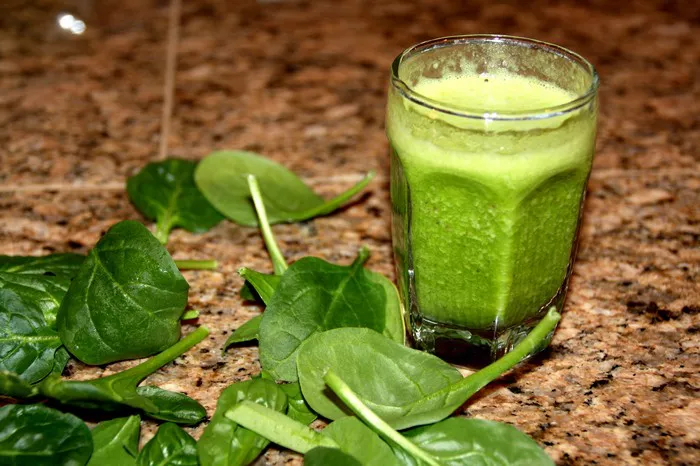Water, the elixir of life, is an essential component for the existence and optimal functioning of the human body. From cellular processes to maintaining bodily functions, water plays a pivotal role in ensuring the well-being of every individual. In this comprehensive article, we delve into the multifaceted importance of water, exploring its impact on various physiological systems and its crucial role in promoting overall health.
The Significance of Water
A. Definition and Composition of Water
To comprehend the importance of water to the human body, it is crucial to understand its basic properties. Water, a simple molecular compound with the chemical formula H2O, consists of two hydrogen atoms covalently bonded to one oxygen atom. Its unique structure gives rise to remarkable properties that make it indispensable for life.
B. The Human Body’s Reliance on Water
The human body is predominantly composed of water, with approximately 60% of an adult’s body weight being attributed to this vital substance. Each organ, tissue, and cell relies on water for various functions, making it a fundamental factor in maintaining physiological equilibrium.
Hydration and Homeostasis
A. Water Balance and Homeostatic Mechanisms
Achieving and maintaining water balance is crucial for the body’s homeostasis, ensuring stability in internal conditions. Homeostatic mechanisms, regulated by the endocrine system and kidneys, play a pivotal role in managing water levels to prevent dehydration or overhydration.
B. Electrolyte Balance
Beyond pure hydration, water is essential for maintaining the balance of electrolytes in the body, including sodium, potassium, chloride, and bicarbonate. These electrolytes are critical for nerve impulses, muscle contractions, and the overall electrical stability of cells.
C. Temperature Regulation
Water is a key player in the body’s thermoregulation processes. Through processes such as sweating and evaporation, the body utilizes water to dissipate heat, preventing overheating and ensuring a stable internal temperature conducive to optimal physiological functioning.
Nutrient Transport and Metabolism
A. Solvent Properties of Water
As a universal solvent, water facilitates the dissolution and transport of various nutrients, including carbohydrates, proteins, and lipids. This property is crucial for the absorption and distribution of essential substances throughout the body.
B. Role in Digestion and Absorption
Water is intricately involved in the digestive process, aiding in the breakdown of food particles and the absorption of nutrients in the gastrointestinal tract. Proper hydration ensures efficient digestion and absorption, preventing issues such as constipation and malabsorption.
C. Metabolic Reactions and Energy Production
Many metabolic reactions, including those involved in energy production through cellular respiration, rely on water as a key participant. From glycolysis to the electron transport chain, water is essential for facilitating biochemical reactions that generate ATP, the body’s primary energy currency.
IV. Cognitive Function and Mental Well-being
A. Impact on Brain Structure and Function
The brain, consisting of a high percentage of water, is highly sensitive to changes in hydration status. Adequate water intake is crucial for maintaining the structural integrity of brain cells and optimizing cognitive functions such as memory, attention, and problem-solving.
B. Mood Regulation
Dehydration has been linked to alterations in mood and cognitive performance. Studies suggest that even mild dehydration can negatively impact mood, leading to increased feelings of anxiety, irritability, and fatigue. Maintaining proper hydration levels is therefore essential for mental well-being.
C. Prevention of Cognitive Decline
Long-term water intake has been associated with a reduced risk of cognitive decline and neurodegenerative diseases. The neuroprotective effects of water underscore its role in promoting brain health and mitigating the risk of conditions such as dementia and Alzheimer’s disease.
Detoxification and Waste Elimination
A. Kidney Function and Filtration
The kidneys, vital organs in the excretory system, rely on water for the filtration of waste products and excess substances from the bloodstream. Adequate hydration supports optimal kidney function, preventing the accumulation of toxins and promoting overall renal health.
B. Role in Liver Detoxification
The liver, a central organ in detoxification processes, requires water to carry out metabolic functions that neutralize and eliminate toxins from the body. Sufficient water intake supports the liver’s ability to detoxify and contributes to the overall health of the body’s detoxification pathways.
C. Skin Health and Sweat
The skin, the body’s largest organ, plays a crucial role in the elimination of toxins through sweat. Water is essential for maintaining skin hydration and supporting the body’s natural detoxification mechanisms, contributing to a clear complexion and overall skin health.
Joint and Muscular Health
A. Lubrication of Joints
Water is a key component of synovial fluid, which lubricates joints and facilitates smooth movement. Proper hydration is essential for preventing joint stiffness and discomfort, contributing to overall joint health and flexibility.
B. Muscle Contraction and Performance
Muscles require adequate hydration for optimal function, including the contraction and relaxation necessary for movement. Dehydration can lead to muscle cramps, fatigue, and decreased physical performance, emphasizing the importance of water for athletes and active individuals.
C. Recovery and Injury Prevention
Hydration plays a crucial role in post-exercise recovery by aiding in the elimination of metabolic waste products and reducing the risk of injuries. Maintaining proper fluid balance is essential for supporting the body’s ability to recover and adapt to physical stress.
Prioritizing Hydration for Optimal Health
In conclusion, the importance of water to the human body is unparalleled, influencing virtually every aspect of physiological function. From maintaining homeostasis to supporting cognitive function, detoxification, and musculoskeletal health, water is a cornerstone of well-being. Recognizing the significance of hydration and prioritizing adequate water intake is essential for individuals seeking to optimize their health and promote longevity.
As we navigate the complexities of modern life, let us not overlook the simplicity of this life-sustaining substance. Water, in its purity and ubiquity, stands as a testament to the profound interconnectedness of our bodily systems and the essential nature of this precious resource in fostering a healthy and thriving human existence.
[inline_related_posts title=”You Might Be Interested In” title_align=”left” style=”list” number=”6″ align=”none” ids=”5568,5488,5461″ by=”categories” orderby=”rand” order=”DESC” hide_thumb=”no” thumb_right=”no” views=”no” date=”yes” grid_columns=”2″ post_type=”” tax=””]

































